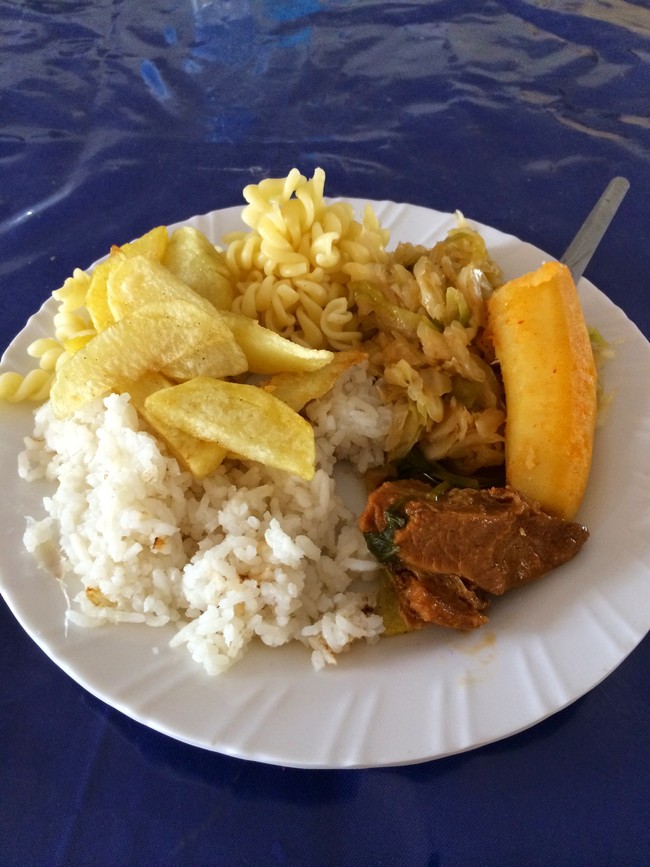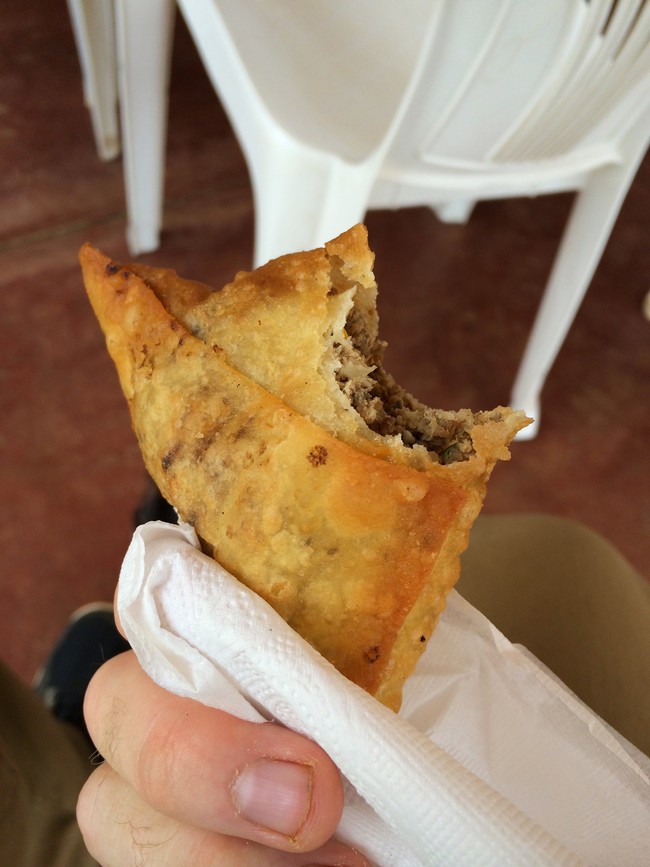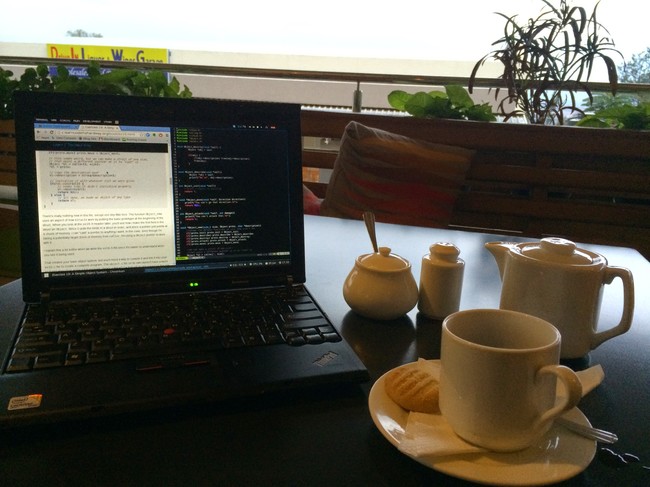Ifunguro
In all my observations of culture and customs in Rwanda, there has always been a significant language barrier. My knowledge of Kinyarwanda, the local language that is spoken by everyone, is minimal at best, eliciting laughs from store owners and merchants that are most definitely directed at me and not with me. However, there is one aspect of culture that needs no explanation, and is an incredible view into the history and attitude of the people of Rwanda: food.
Ifunguro means “dinner” in Kinyarwanda, a meal that is usually eaten around 9:00-10:00 and consists of rice, potatoes, beans, and one small piece of meat. This meal rarely varies in its contents, and more often than not, I find myself wishing for a slightly more flavorful taste of Rwanda. However, a little more exploring and a little more monetary investment brought me to other, more interesting meals– ones that I think are more representative of traditional Rwandan food. The first discovery I made was that of the samosa– jokingly referred to by our group as the “hot pocket of Rwanda,” the samosa is a pastry filled with meat and sometimes stuffed with a hard-boiled egg or cheese. It’s delicious, cheap, and a great fast lunch… not to mention, it’s got a kick to it! Meals in Rwanda rarely have many spices, so anything that packs even a mild heat is a welcome change.
Another much less flavorful, but possibly more important, traditional food is the many preparations of the cassava plant. The cassava plant is a curious looking root plant that is widely used in meal preparation in East Africa. Its roots are dug up, sliced into cubes, and can be ground up with water to create a flour-like paste that often serves as a cake-y starch for meals. This cake is very bland, but is an excellent source of carbohydrates and pairs nicely with a dish of greens, prepared from the leaves of the very same cassava plant. It’s a curious experience to have a meal prepared entirely from one plant, but the flavors compliment each other and make for an authentic Rwandan cuisine. Maybe it isn’t a feast for kings, but it’s an important traditional food and for that, it’s worth a try! If you ever find yourself in Rwanda, you’ll inevitably end up eating it at some point or another.
Finally, something that has struck me very significantly is the lack of a certain cuisine that Rwanda is so well known for: coffee. There is no coffee in Rwanda. I have only seen one authentic Rwandan coffee shop (which, in fact, is where I am writing this post right now!), and its prices are comparable to Starbucks back home. As I have learned during my stay, coffee is such a valuable export to the nation that virtually none of it stays here– as a tour guide told us, we were the reason that we couldn’t have Rwandan coffee in Rwanda! No one seems too heartbroken, as the coffee is a substantial source of revenue for the country, but it was definitely a curious paradox to visit a famous coffee-growing country and struggle to find a good cup of coffee! I am just finishing my first cup since I left America. It’ll be a while before I have another, so I’m going to enjoy it!


